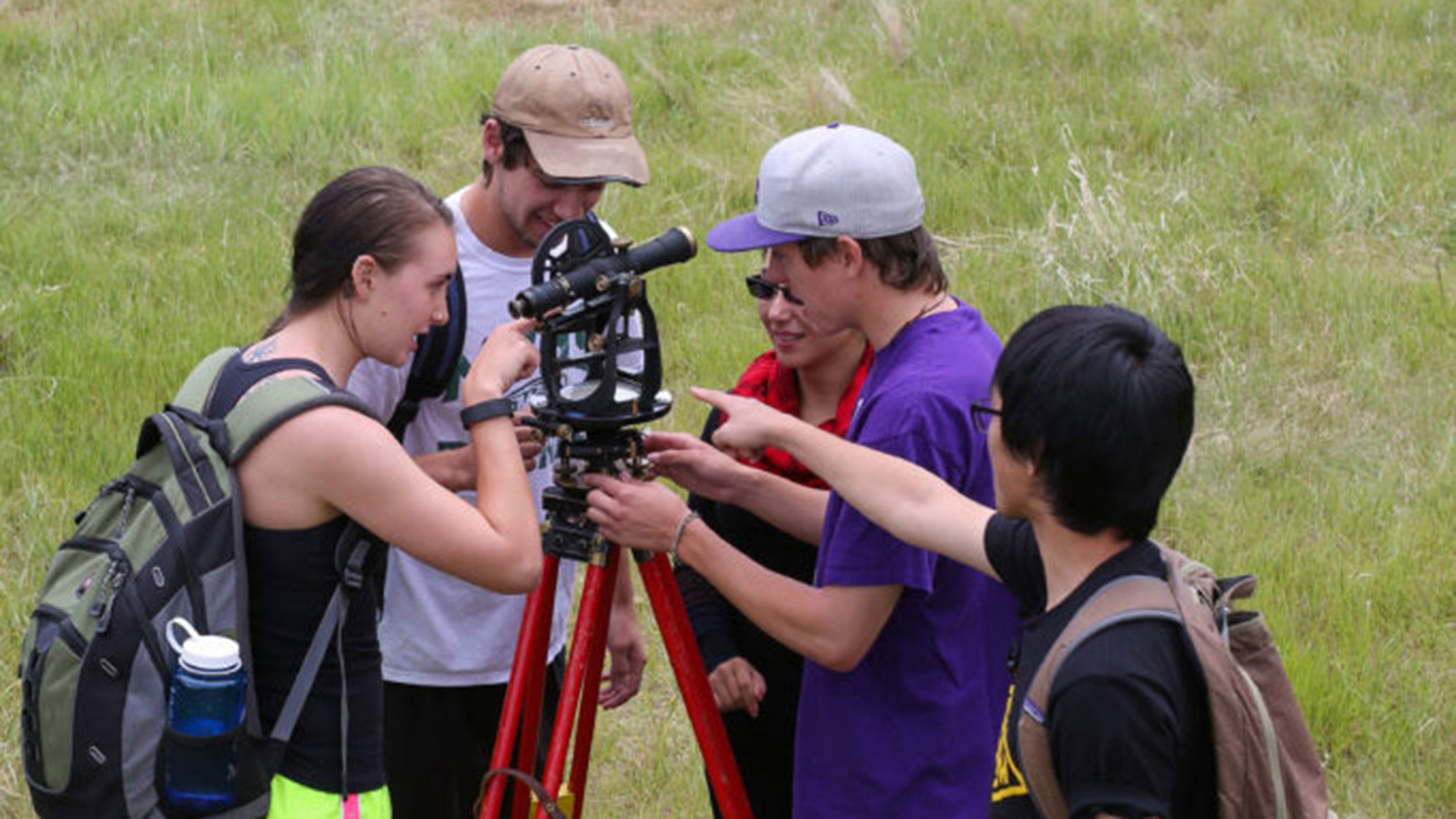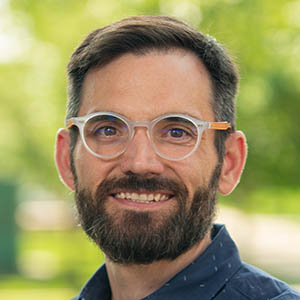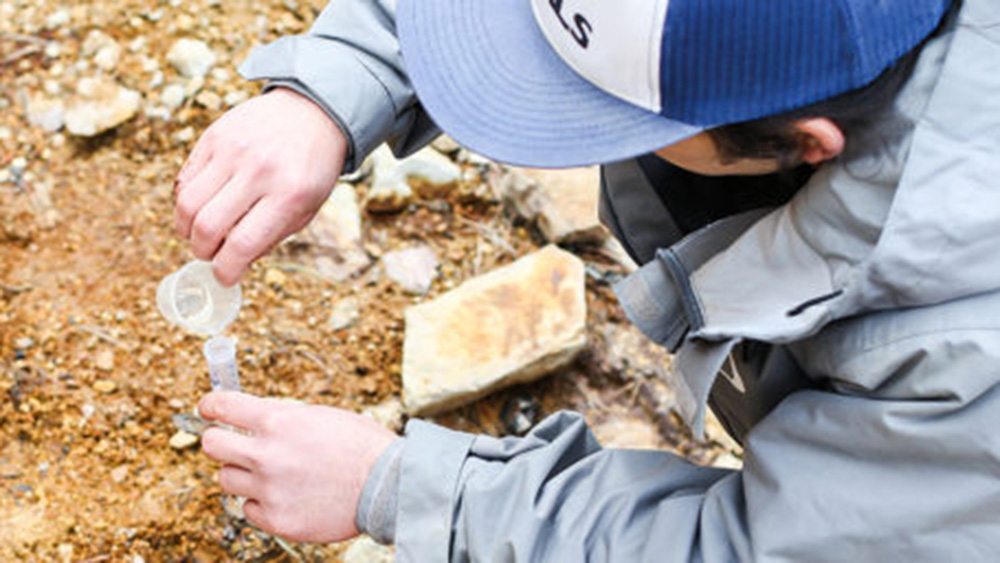Environmental Engineering
Bachelor’s Degree
Build Your Future Today at Mines
The Bachelor of Science in Environmental Engineering program at Colorado School of Mines trains students to address key societal challenges of today and tomorrow. Graduates are prepared to investigate and analyze environmental systems and assess risks to public health and ecosystems as well as evaluate and design natural and engineered solutions to mitigate risks and enable beneficial outcomes.
Core topics addressed in our undergraduate curriculum include:
- Water resources and hydrology
- Site remediation and waste management
- Water and wastewater treatment, reclamation and reuse
- Environmental science, regulation, and policy
Our program features hands-on courses that include a client-driven field session, laboratory analyses, hydrology computational labs, and a culminating capstone design course in which students apply their technical knowledge and skills to a real-world design project.
A robust “4+1” BS/MS program smoothly transitions interested and qualified students into a master’s degree with further focus and professional opportunities.
Learn more about our innovative program here: Civil and Environmental Engineering website.


Experiential major menus
Uniquely tailored to your undergraduate major of choice, these menus offer a wide array of extra-curricular activities that complement and enrich the traditional classroom experience.
Explore the extra-curricular activities that complement your degree.
Environmental Engineering at a glance

Undergraduate research opportunities

Hands-on fields sessions

Flexible curriculum to shape your education

4+1 combined degree program to earn your BS and MS in five years
Program Objectives
Within three years of attaining the Bachelor of Science in Environmental Engineering, graduates will be situated in careers or will be successfully pursuing a graduate degree in Environmental Engineering or a related field; advancing in their professional standing, generating new knowledge and/or exercising leadership in their field; and contributing to the needs of society through professional practice, research and/or service.
Environmental Engineering Curriculum
Areas of Special Interest
- Environmental Engineering
Available Minors
- Water Sustainability
Career suggestions for environmental engineering majors:
- Environmental engineer
- Engineering manager
- Water project manager
- Environmental health and safety director
- Green building engineer
- Marine engineer
- Environmental scientist
- Hydrologist

Faculty Spotlight
Dr. Eric Anderson
Dr. Eric Anderson serves as an Associate Professor in Civil & Environmental Engineering and the Hydrologic Science and Engineering Program at Mines. Dr. Anderson’s research primarily focuses on the interactions between the hydrosphere, cryosphere, and atmosphere, wherein he uses numerical modeling to study Earth’s largest lakes and rivers, extreme storms, coastal flooding, lake-effect precipitation and the impacts on ecosystems.
Formerly, he worked as a physical scientist at the National Oceanic and Atmospheric Administration (NOAA) Great Lakes Environmental Research Laboratory (GLERL). In this role, he developed real-time hydrodynamic-ice forecast systems for lakes and rivers to support navigation, spill response, search and rescue operations, drinking water safety, and numerical weather prediction.
Making Mines more affordable
Mines’ financial assistance program awards more than $60 million per year, and over 82 percent of the student body receives some form of financial aid.


Why study environmental engineering at Mines?
As one of the leading engineering and applied science universities in the nation, it’s no wonder that countless students have chosen Mines to pursue their bachelor’s degree in environmental engineering. With hands-on learning, a renowned faculty and access to world-class research facilities, Mines provides students with the skills, foundational knowledge and passion to excel.
Why do so many students choose Mines?
- Close relationships with industry partners
- Work side-by-side with renowned faculty
- Undergraduate research opportunities
- World-class research facilities, such as our PFAS, CERA, and AQWATEC labs
- Take part in a unique student experience with our traditions like the M Climb and Engineering Days

Cassidy Bergenthal
I’m involved with Mines Without Borders and am currently on a team working to design and implement a system of solar lights in a small town in Uganda. There are literally hundreds of other ways to get involved at Mines and I would encourage you to look into clubs and organizations at any college you are interested in.
Cassidy Bergenthal
Environmental Engineering Student

Career Outcomes
One of the distinct advantages to earning a BS in environmental engineering is that it opens up the doors to a wide range of diverse career opportunities across various industries. Many of our graduates have gone on to rewarding careers in mining, oil and gas, chemical processing, manufacturing and a variety of other industries. Many have also chosen careers in business or consulting, leveraging their technical skills and knowledge to thrive in different fields.
Due to the unique nature of our undergraduate program, students may choose a variety of different tracks so that they can pursue their passions and interests. For example, many of our specific program tracks include environmental science and chemistry, water and wastewater treatment, site remediation, hydrology, humanitarian engineering and more.
At Mines, our faculty and staff are dedicated to empowering you to find what inspires you. And with hands-on training, undergraduate research opportunities and close industry partnerships, you’ll have the tools and resources to confidently take that next step.
Learn more about the experience and success of one of our alumni.